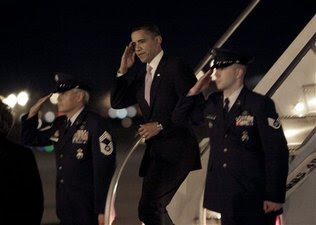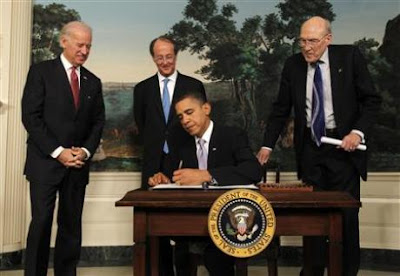
Washington (CNN) -- President Barack Obama signed a memorandum Tuesday establishing a new federal task force to tackle the growing problem of childhood obesity.
The task force, according to the memorandum, will have 90 days to craft a plan encouraging "optimal coordination" between the federal government and both the private and non-profit sectors, according to Obama.
Several Cabinet members, including the secretaries of Interior, Agriculture, and Health and Human Services, will serve on the task force. Its work will complement an aggressive public relations effort led by first lady Michelle Obama to raise public awareness of the issue.
Childhood obesity is "one of the most urgent health issues that we face in this country," the president said at the White House.
"We think that this has enormous promise in improving the health of our children, in giving support to parents to make the kinds of healthy choices that oftentimes are very difficult."
The administration, according to the memo, "is committed to redoubling our efforts to solve the problem of childhood obesity within a generation through a comprehensive approach that builds on effective strategies, engages families and communities, and mobilizes both public and private sector resources."
The memo notes that almost one-third of American children are overweight or obese -- a rate that has tripled among adolescents and more than doubled in younger children since 1980.
About one-third of Americans born in the year 2000 or later will suffer from diabetes at some point in their lifetime, according to the memo.
Michelle Obama will launch a national campaign against childhood obesity at noon at the White House.
Mayors, doctors and leaders in sports, entertainment and business will join the first lady as she kicks off the campaign. Members of President Obama's Cabinet will also be there.
As part of the campaign the first lady is urging families to turn off the television, drink more water and serve smaller portions.
During a speech last month at a Virginia YMCA, the first lady spoke about health issues caused by childhood obesity.
"We've seen the surge in obesity in this country is nothing short of a public health crisis, and it's threatening our children, it's threatening our families, and more importantly it's threatening the future of this nation," she said. "Higher rates of obesity are directly linked, as you've heard, to higher rates of chronic illnesses like heart disease and cancer and diabetes."
During her speech at the YMCA, Michelle Obama shared strategies she has used with her own children.
She helped her daughters stay active by limiting television watching, she said. The first lady also cut back on meal sizes and sugary drinks, and added more fruits, vegetables and water to their diet.
"It was really very minor stuff. But these small changes resulted in some really significant improvements," Obama said.
 WASHINGTON -- The Obama administration on Friday proposed new regulations aimed at protecting workers' retirement savings from unethical financial advisers.
WASHINGTON -- The Obama administration on Friday proposed new regulations aimed at protecting workers' retirement savings from unethical financial advisers.










